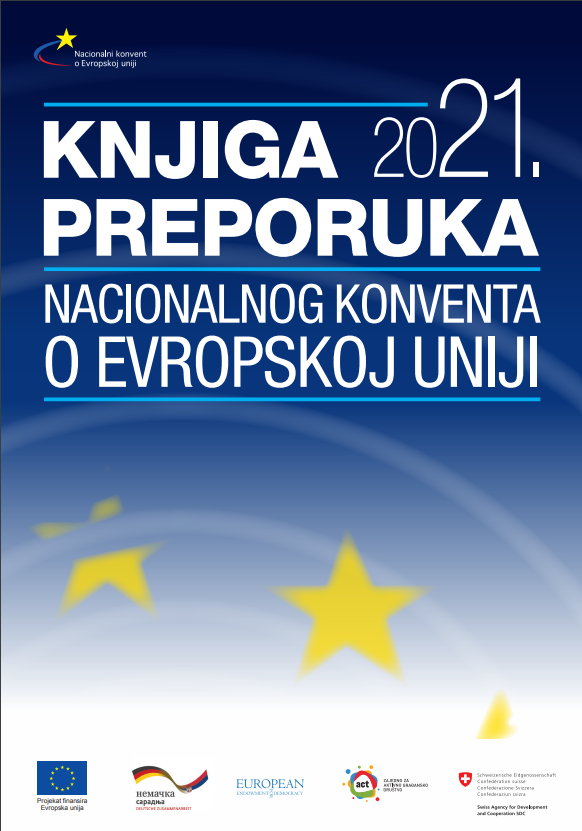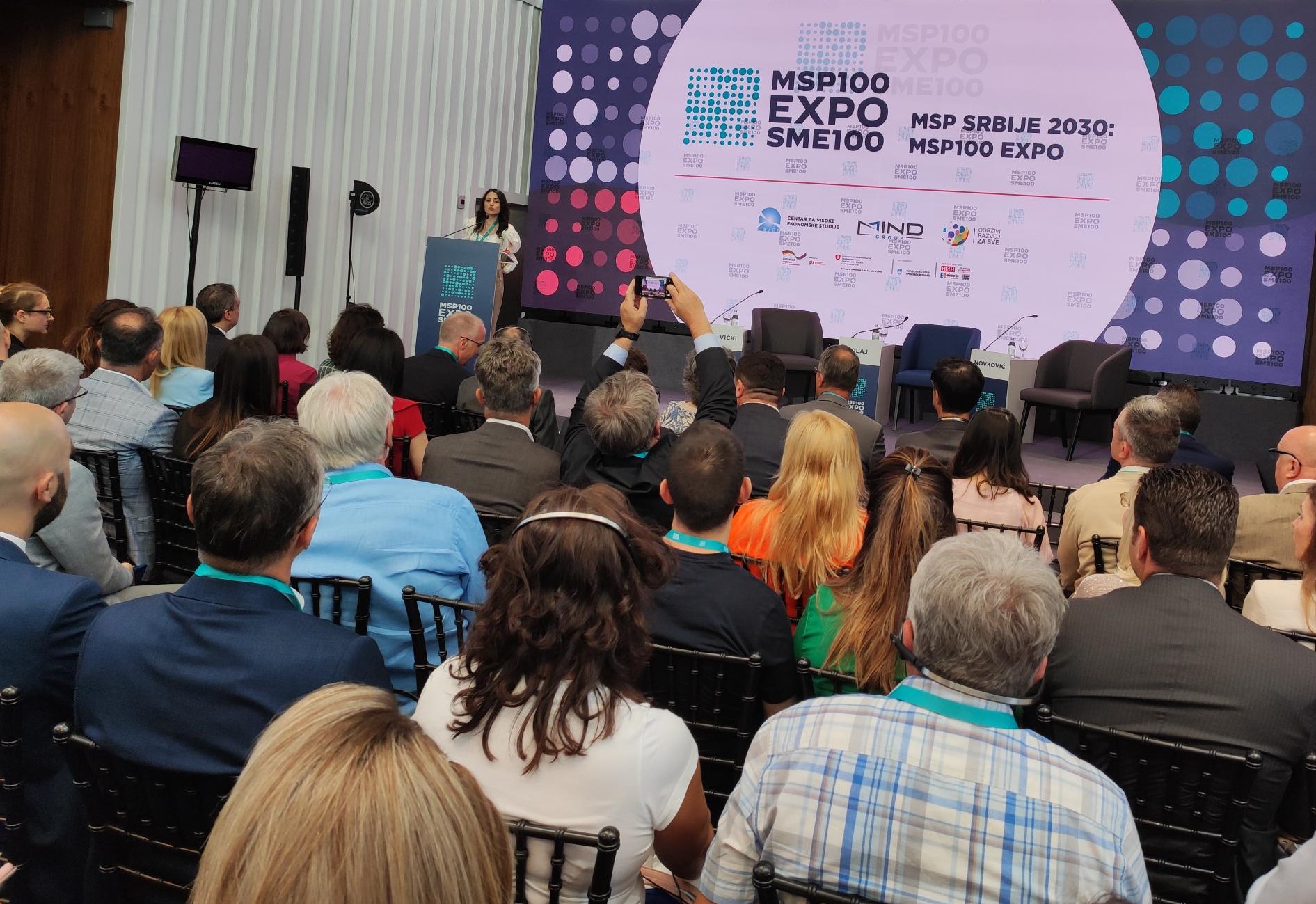The event SME Serbia 2030: SME100 Expo was held on June 1, 2022 in MIND Park in Kragujevac, with the aim of highlighting the development potential of the domestic economy embodied in carefully selected MSP100, leading in Serbia and small and medium by international standards. This event was an opportunity to empower and inspire each other, talk and connect, and launch initiatives that will support the development of SMEs and direct their strength towards the achievement of goals for the whole society.
First of all, we take this opportunity to warmly thank the Ambassador of Germany, Thomas Schieb, as well as the Ambassador of Switzerland, Urs Schmid, who came to Kragujevac to see and open the exhibition with words of encouragement for the effort to gather and hear the voice of leading SMEs.
Furthermore, you can watch a video of panel 1 on YouTube (slightly truncated, due to technical problems at the very beginning), where the participants pointed out that “hidden champions” play an extremely important role in the development of a powerful industrial country such as Germany, and that it is important to hear about hidden champions, not to remain hidden, because in that way increase the interest of young people in employment outside large urban agglomerations – where Champions are more frequent employers. We have also heard that in Ireland, a country known for its success in its efforts to attract quality foreign investors, there is also a separate government agency dedicated to the development of SMEs, and their internationalization. Finally, we heard that the hidden champions in Slovenia organized themselves in the “Slovenian business club”, and thus achieved that their word is heard very clearly and loudly when making public policies.
Then, at three round tables (which were hard to break for lunch!), a list of proposed initiatives was discussed, which you can still find on the next link. You can also find information about SME 100 at this link.
In the second, final panel, we heard that there are already some reform efforts moving in the direction of the proposed initiatives. As the most interesting, we single out the words of Mr. Chadez, the president of the PKS, who believes that the time has come to establish a truly independent and strategically positioned development bank in Serbia. He also announced greater efforts to adapt teacher profiles in Serbia to the needs of the economy. From Mr. Miljan Ždrale, EBRD Director for Southeast and Central Europe, we heard that it is really an anomaly that Serbia does not support export guarantees in any way, as well as the importance and possibilities of further development of capital markets that provide far more opportunities in neighboring countries. financing its SMEs. From the Assistant Minister Mr. Obradović, we have heard how important it is for the economy to propose very concrete proposals, as well as that there is a site “Entrepreneurship” which can now be used to inform about everything that the state is doing to support SMEs.
Finally, the event ended with a very inspiring panel – a conversation that our celebrated journalist Jelena Zorić had with Rade Šerbedžija and Dragan Bjelogrlić (who do not need a presentation) about how film and culture can go hand in hand with entrepreneurship. You can take a look at the site in the gallery and we will continue to publish the materials from the conference on CEVES channels
Once again, we owe our gratitude to the Sustainable Development for All Platform implemented by GIZ with the support of the Swiss and German governments, without which this event would not be possible, as well as to MIND Park for recognizing the idea and believing in it from the beginning. . We are also grateful to the Embassy of Slovenia in Belgrade for additional support and media partners: NIN, Nova Ekonomija, E-Kapija, Diplomacy & Commerce.
 You can find SME 100 initiatives here.
You can find SME 100 initiatives here.
For more information, you can visit the MSP 100 official website.
You can see videos of the conference panels on our YouTube channel.



 SR
SR